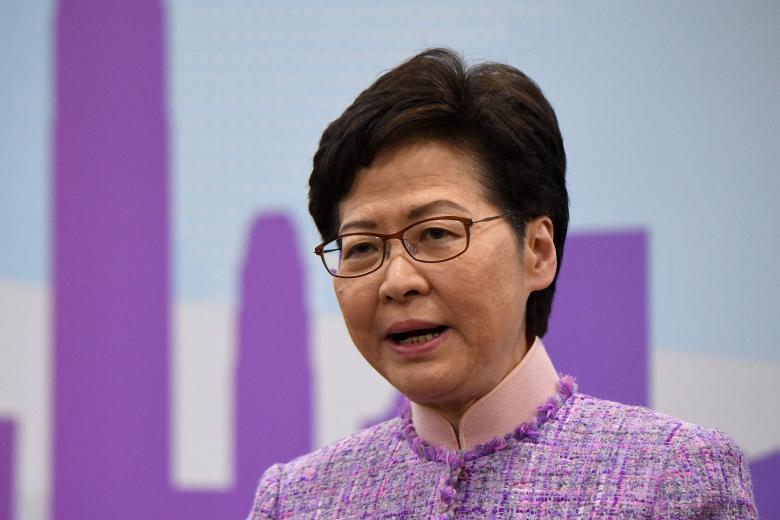
BEIJING – As members of China’s lawmaking body file into the Great Hall of the People on Saturday (March 5) to the strains of the Welcome March for the country’s largest political gathering, one figure will notably be missing: Hong Kong leader Carrie Lam.
The Chief Executive, who is traditionally invited to attend the opening of the National People’s Congress (NPC), has turned down her invite to focus on battling the city’s most serious coronavirus outbreak yet, with tens of thousands of new cases reported daily this week.
Nearly half of Hong Kong’s almost 240 delegates, including its sole representative to the NPC Standing Committee, Mr Tam Yiu Chung, have been barred from attending or are under quarantine because of Covid-19.
Beijing had ordered the deputies, as delegates are known as, to first self-quarantine in Hong Kong for a week, and undergo another week of centralised quarantine in China’s Shenzhen city, before they could attend the meetings in Beijing.
Beginning on Friday, the annual meetings of the NPC and the Chinese People’s Political Consultative Conference (CPPCC) – collectively referred to as the Two Sessions, or lianghui – bring together lawmakers and representatives from across the country, including Hong Kong and Macau.
But as the Covid-19 outbreak raged in Hong Kong, some delegates tested positive even before leaving the city while others were detected in quarantine. Only 17 of 36 Hong Kong NPC deputies and around half of about 202 CPPCC representatives made it to Beijing.
“Seeing your colleagues test positive or getting identified as close contacts one by one, it was almost like being in Squid Game,” said CPPCC member Michael Woo, who underwent 13 nucleic acid tests in two weeks just to attend the meetings.
Mr Tam was barred from the meetings after being identified as a close contact of Mr Irons Sze, a CPPCC member who tested positive, as was the head of Hong Kong’s NPC delegation Ma Fung-kwok.
As a result, Mr Tam’s seven-day quarantine in Shenzhen was extended to 21 days. “I’m going through nucleic acid testing every day,” he told The Straits Times in a text message. “There’s been no arrangement for online voting so I’m just following proceedings through live broadcasts.”
In some ways, Hong Kong’s Covid-19 troubles are a physical manifestation of the longstanding tension between the city’s institutions and China’s goals.
A former British colony, the financial hub values principles like data privacy and individualism.
But in China’s “dynamic zero” approach to Covid-19, which Hong Kong also adopts, Beijing has harnessed the power of big data and collective social responsibility.
“In a way, you are trying to use Western tools to achieve a Chinese outcome; it’s impossible,” said Professor Wong Kam-fai, a member of the CPPCC who made it to Beijing.
The quagmire from the government’s handling of the outbreak has also exposed problems within the administration, said Associate Professor Tian Feilong of Beijing’s Beihang University who studies Hong Kong.
“Events in 2019 exposed Hong Kong’s national security problems… and now it’s shown the issues they have in responding to a pandemic,” he said, referring to issues such as the lack of local resources to enforce mass testing.
But delegates and analysts rubbished any suggestion that Mrs Lam’s absence is indicative of her political future.
“The Chief Executives (of Hong Kong and Macau) are not part of the NPC system and they attend the ceremony as invited guests,” said Prof Tian, who also advises the Chinese government on Hong Kong.
“Whether (Mrs Lam) continues in government or not depends on two things: how well the outbreak is managed, and whether there is someone who can be a strong challenger.”

